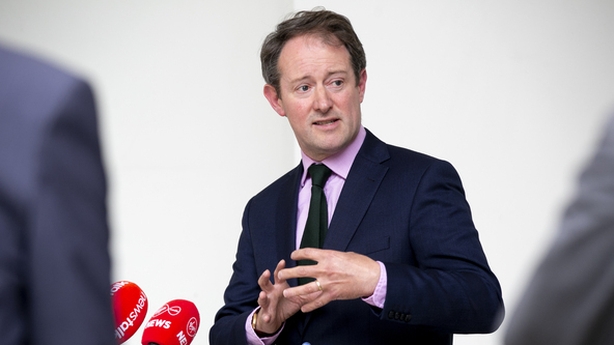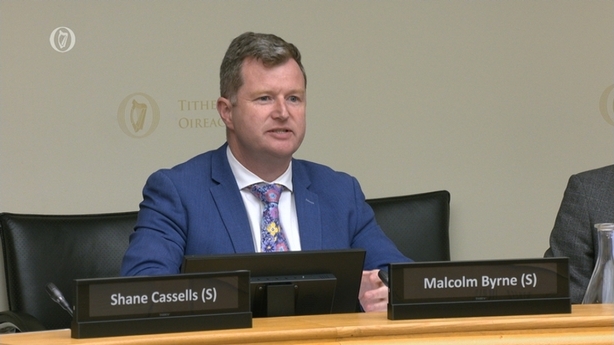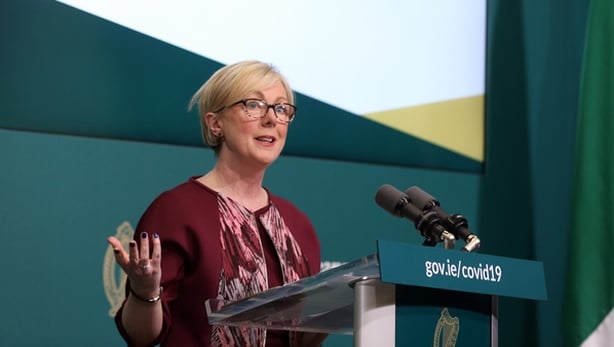For more than 50 years there has been a Sherlock on the ballot paper in the constituency of Cork East.
The late Joe Sherlock first ran for a seat in Dáil Eireann in 1973, it took him three attempts to get elected but he finally took up a seat in 1981.
Since then, the Sherlock family has had 42 years of unbroken service in the constituency.
Joe was returned in 1981 as TD for Sinn Féin the Workers' Party before joining Democratic Left and laterally the Labour Party.
He retired in 2007 and his son Sean has held the seat as a Labour Party TD since then.
It is no wonder then, that Sean spoke of a "sense of loss" this week when he told local radio station C103 that he must now make a decision on whether to move constituency or retire from politics at the next election.
His decision was precipitated by the Constituency Review published by the Electoral Commission on Wednesday, which recommends his political heartland and hometown of Mallow should be moved into Cork North-Central.

He described the boundary change as "years of work that my late father and I have put in, just literally gone in one fell swoop".
As Deputy Sherlock takes time to reach his decision he is not alone.
Sitting TDs, prospective candidates, party apparatchiks and political watchers have been pouring over the maps since their publication on Wednesday trying to work out how to maximise their chances in the next election.
In the newly minted three-seat constituency of Wicklow-Wexford, Fianna Fáil Senator Malcom Byrne is the first to publicly declare an interest in running.
The constituency takes in the south Wicklow areas of Tinahely, Avoca and Arklow and the north Wexford areas of Gorey, Ferns and Bunclody.
Senator Byrne said he is "not displeased" with the make-up of the newly established hybrid constituency.
His Gorey base is perfectly situated right in the middle, and he will be hoping to capitalise on this.

Wicklow-Wexford sits on the edge of the Dublin commuter belt and that brings a diverse range of issues.
The Gorey local electoral area saw population growth of 14% between 2016 and 2020, (the national average was 8%).
Senator Byrne says "housing, schools and services will be big themes.".
"There is also an agricultural hinterland where farming is important and then there are tourism related issues which are a feature on the east of the constituency."
Further up the M11, Wicklow, once a single county five-seat constituency, has ceded territory and a TD dropping back to 4 seats.
In the aftermath of the Constituency Review being published Sinn Féin TD John Brady described the creation of a smaller four-seat Wicklow it as a "hatchet job".
He stands by the comment and says the Electoral Commission could have left the county untouched with five seats and the county bounds intact as it would only be marginally above the threshold of one TD per 30,000.
He says what they are left with is a constituency that is "illogical" and represents "bureaucratic madness" on the part of the Commission.
Deputy Brady says despite the fact there was no TD from Greystones to Enniscorthy "no one in Wicklow was under-represented".
The Electoral Commission Review was a hatchet job on Wicklow. 17 constituencies still exceed the 30,000 ratio, Wicklow marginally exceeded it with a population of 155,851, so 31,170 per TD. Could have been made a 6 seater following outcome of next review which may allow them. pic.twitter.com/J59Zn5OS5B
— John Brady TD (@johnbradysf) August 30, 2023
"It is not just about where a TD sleeps at night - we represent all of Wicklow, not just one pocket," he said.
Wicklow exemplifies the calculations being made by all political parties.
For starters there are five sitting TDs chasing four seats. Those are John Brady (SF), Simon Harris (FG), Stephen Donnelly (FF), Steven Matthews (GP), and Jennifer Whitmore (Soc-Dems).
In a five-seater the larger parties would almost certainly adopt a two-candidate strategy, so what might they do in a downsized constituency?
In electoral terms Dublin remains a dominant force. Any party with designs on government will need to do well in the capital. The Electoral Commission is recommending an increase of four TDs to 49 out of the 174 Deputies in the next Dáil.
The sprawling five-seater of Dublin-Fingal will be split into two threes.
Fine Gael Senator Regina Doherty made the move to Fingal after losing her seat in Meath East in the 2020 general election.

Despite Meath East being the beneficiary of an extra seat, she insists she has no regrets about the move. She will however be acutely aware of how tricky a three-seater can be.
"I am three years in Fingal and firmly believe I made the right decision" she says.
The new constituency of Fingal-West will take in Skerries and Balbriggan to the north where Louise O'Reilly (SF) and Joe O’Brien (GP) are based and will stretch right down to Ballymun.
Senator Doherty says the biggest challenge for all candidates will be to get into some of the newer communities in the likes of Santry and Finglas where there has been a lot of development in recent years.
This constituency review was described as the single "red hot" political issue at the start of the summer. Its publication marks the start of the election jostling.
All minds are now firmly focused on the next General Election and strategists will be looking at how they might maximise their party’s vote in these new constituencies.
As TDs and Senators return from their summer break, an autumn of announcements is expected as they gauge where their careers fit into that bigger picture.







